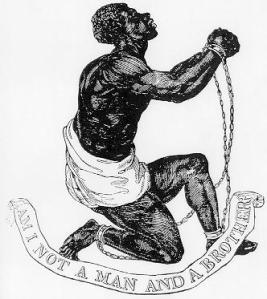This is a guest post by Kathryn Hemingway, one of IHR Digital’s summer interns from the University of Leicester.
 It is evident in the historiography of antislavery that the topic has been somewhat isolated from other aspects of British rule. However, central to Wyman-McCarty’s seminar is the argument that contemporaries of the 18th century drew parallels between the injustices and instances of violence associated with the trans-Atlantic Slave Trade and the oppressive British colonisation of India via the East India Company. Linking these two issues was the fear and expectation of divine retribution for Britain’s crimes of decadence and exploitation, and the problem of imperial morality. Wyman-McCarty points to a number of key figures in the opposition to antislavery and suggests that their antipathy was not limited to the Slave Trade. Rather, the underlying issue was the power and immorality of British autonomy on the peripheries of the Empire. As such, throughout the 1780s, representations of British power in these separate regions were often analogous and investigations undertaken to ascertain their legitimacy were undertaken contemporaneously.
It is evident in the historiography of antislavery that the topic has been somewhat isolated from other aspects of British rule. However, central to Wyman-McCarty’s seminar is the argument that contemporaries of the 18th century drew parallels between the injustices and instances of violence associated with the trans-Atlantic Slave Trade and the oppressive British colonisation of India via the East India Company. Linking these two issues was the fear and expectation of divine retribution for Britain’s crimes of decadence and exploitation, and the problem of imperial morality. Wyman-McCarty points to a number of key figures in the opposition to antislavery and suggests that their antipathy was not limited to the Slave Trade. Rather, the underlying issue was the power and immorality of British autonomy on the peripheries of the Empire. As such, throughout the 1780s, representations of British power in these separate regions were often analogous and investigations undertaken to ascertain their legitimacy were undertaken contemporaneously.
Despite this, the historiography of antislavery and the British presence in India is characterised by a demarcation of the two – though it may be valuable to consider them in unison as part of a broader context of British imperialism. He further asserts that it was the American Revolution which catalysed a shift in how the management of the two areas was perceived. Wyman-McCarty attempts to address this gap, providing interesting examples of how antislavery and opposition to the actions of the East India Company were often condemned in the same way, before concluding that antislavery groups were often also concerned with other acts of imperialism.
